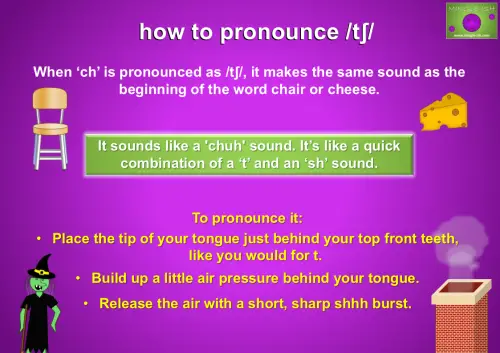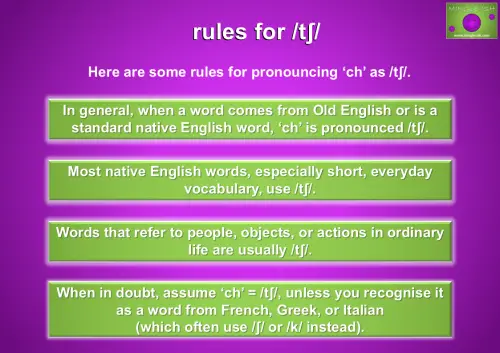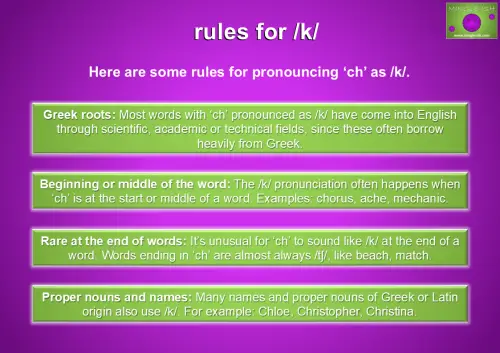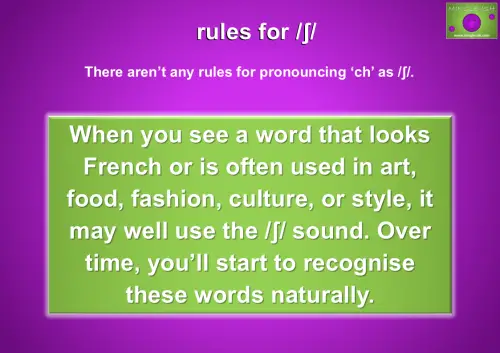Is ‘ch’ ever silent?
No — in English, ‘ch’ is never silent. It always makes a sound: either /tʃ/, /k/, or /ʃ/, depending on the word.
Why is ‘ch’ sometimes pronounced /k/?
The /k/ sound appears in words of Greek origin, like school, chemistry, and chaos. In Greek, the letter ‘chi’ was pronounced as /k/.
How can I practise the different ‘ch’ sounds?
Make word lists for each sound and practise saying them aloud. Repeat short sentences with each sound and listen to native speakers. You can also use online pronunciation tools and quizzes.
Is ‘ch’ ever pronounced like ‘sh’?
Yes — in some words borrowed from French, ‘ch’ is pronounced /ʃ/, like in chef, champagne, machine, and parachute.
What’s the most common way to pronounce ‘ch’?
The most common pronunciation is /tʃ/, as in church, cheese, and child.
Does American English and British English pronounce ‘ch’ differently?
No — the three main pronunciations (/tʃ/, /k/, /ʃ/) are the same in both British and American English.
Are there any rules for when ‘ch’ is /ʃ/?
Unfortunately, no clear rules exist. It mostly happens in French loanwords, so learning by example is best.
Can ‘ch’ come at the end of a word?
Yes — lunch, match, coach all end with ‘ch’, and it’s usually pronounced /tʃ/ in these cases.
Why is ‘ch’ so confusing?
English has borrowed words from many languages (like French and Greek), so the pronunciation of ‘ch’ changes based on the word’s origin.













